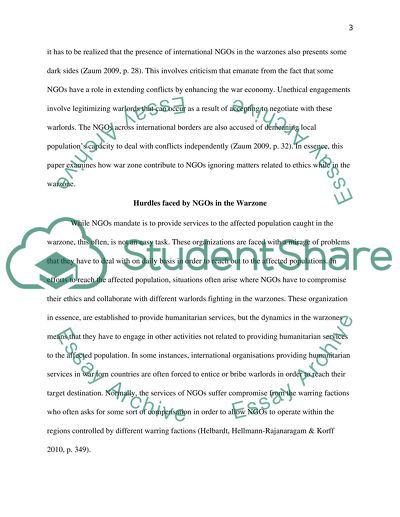Cite this document
(“Managing non governmental organizations. ,,Once inside a war zone, Essay”, n.d.)
Managing non governmental organizations. , Once inside a war zone, Essay. Retrieved from https://studentshare.org/miscellaneous/1641515-managing-non-governmental-organizations-once-inside-a-war-zone-its-essential-to-have-a-blind-spot-for-matters-of-ethics-polman-2010p-91-discuss
Managing non governmental organizations. , Once inside a war zone, Essay. Retrieved from https://studentshare.org/miscellaneous/1641515-managing-non-governmental-organizations-once-inside-a-war-zone-its-essential-to-have-a-blind-spot-for-matters-of-ethics-polman-2010p-91-discuss
(Managing Non Governmental Organizations. ,,Once Inside a War Zone, Essay)
Managing Non Governmental Organizations. , Once Inside a War Zone, Essay. https://studentshare.org/miscellaneous/1641515-managing-non-governmental-organizations-once-inside-a-war-zone-its-essential-to-have-a-blind-spot-for-matters-of-ethics-polman-2010p-91-discuss.
Managing Non Governmental Organizations. , Once Inside a War Zone, Essay. https://studentshare.org/miscellaneous/1641515-managing-non-governmental-organizations-once-inside-a-war-zone-its-essential-to-have-a-blind-spot-for-matters-of-ethics-polman-2010p-91-discuss.
“Managing Non Governmental Organizations. ,,Once Inside a War Zone, Essay”, n.d. https://studentshare.org/miscellaneous/1641515-managing-non-governmental-organizations-once-inside-a-war-zone-its-essential-to-have-a-blind-spot-for-matters-of-ethics-polman-2010p-91-discuss.


